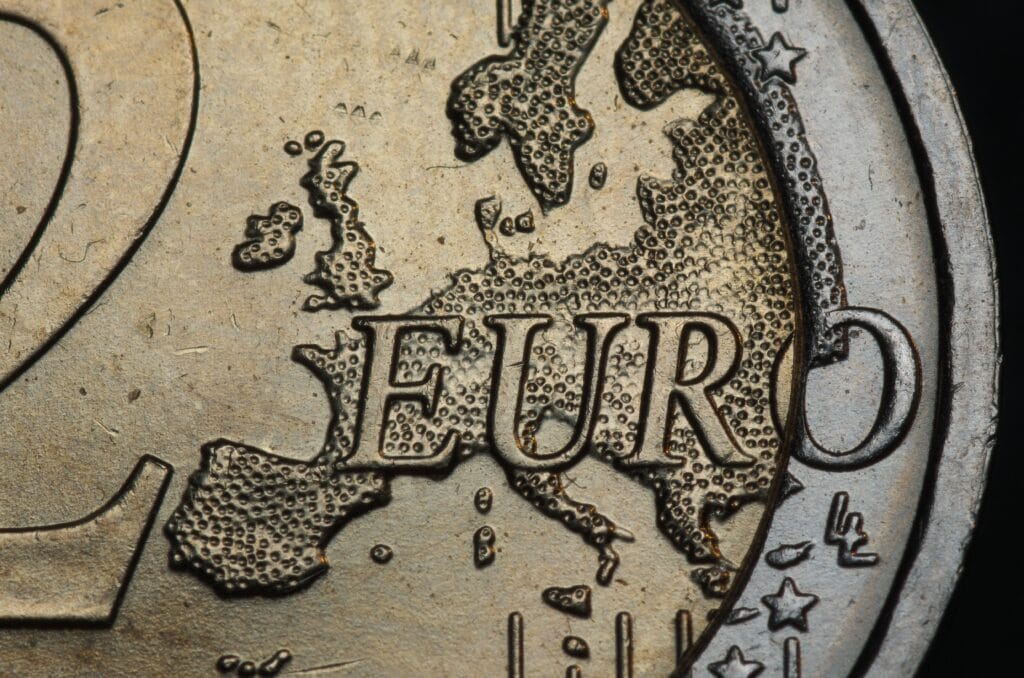To determine whether an aid measure is selective, the treatment of the beneficiaries has to be compared to those undertakings which are in a comparable position. Introduction On 15 November 2018, the General Court ruled in case T-239/11, Sigma Alimentos Exterior v European Commission.1 Sigma Alimentos Exterior (SAE), a Spanish company, appealed against Commission decision 2011/282 which found that […]
State Aid Law
Blog
State Aid Uncovered Blog
In Lexxion’s State Aid Uncovered blog, Prof. Phedon Nicolaides publishes weekly critical analyses of recent State aid judgments and decisions. Each post presents the key points of a court judgment or EU Commission decision, places it in the context of similar case law or practice, assesses the underlying reasoning and highlights any inconsistencies or contradictions.
Guest contributions from other State aid experts will also be published on the blog at irregular intervals to complement the content of the blog posts.
12. December 2018 |
State Aid Uncovered
by Phedon Nicolaides
4. December 2018 |
State Aid Uncovered
by Phedon Nicolaides
Introduction In its ruling of 6 November 2018 in cases C‑622/16 P to C‑624/16 P, Scuola Elementare Maria Montessori v European Commission, the Court of Justice made it harder for Member States to escape from their recovery obligations.[1] Montessori appealed against the judgment of the General Court in case T‑220/13, Scuola Elementare Maria Montessori v European Commission. That judgment was reviewed here on […]
27. November 2018 |
State Aid Uncovered
by Phedon Nicolaides
Investors that lodge claims before national courts for damages from resolution of banks have legal standing to request annulment of Commission decisions authorising State aid to those banks. Introduction It is now ten years since the start of the financial crisis. In these ten years, the Commission has adopted about 500 decisions dealing with State aid to banks and other […]
20. November 2018 |
State Aid Uncovered
by Phedon Nicolaides
The agreement on the withdrawal of the UK from the EU requires compliance with EU State aid rules. Introduction On 14 November 2018, EU and UK negotiators finalised the text of the Agreement on the withdrawal of the UK from the EU.[1] The Agreement has to be ratified by the UK and the other 27 Member States. Given immediate […]
9. November 2018 |
State Aid Uncovered
by Phedon Nicolaides
Compensation for the extra costs of a public service obligation may include a reasonable profit that reflects the risk borne by the provider of the public service. Introduction The calculation of the amount of compensation for the extra costs of public service obligations can be difficult and tricky. In the absence of such calculation, aid to providers of […]
6. November 2018 |
State Aid Uncovered
by Phedon Nicolaides
Operating aid is not normally compatible with the internal market. Therefore, State aid provided through state guarantees should not cover operating costs. State aid embedded in guarantees must be quantifiable so that its necessity and proportionality can be assessed. The assessment of State aid must be made within an EU context taking into account its impact on trade. Introduction […]
30. October 2018 |
State Aid Uncovered
by Phedon Nicolaides
Taxes which are inseparably linked with an aid measure are assessed together with the aid itself. An increase of the budget of an aid scheme by more than 20% constitutes a change of existing aid that must be notified to the Commission for prior authorisation. Introduction Taxpayers may not refuse to pay taxes on the grounds that the tax […]
23. October 2018 |
State Aid Uncovered
by Phedon Nicolaides
Neither the existence of market failure, nor national laws that designate a service to be in the general interest can replace an official act that assigns to one or more undertakings clearly defined public service obligations. Introduction The proper definition of public service obligations (PSOs) is an issue that arises with surprising regularity. It is surprising because numerous court […]
16. October 2018 |
State Aid Uncovered
by Phedon Nicolaides
Unlimited state guarantees create a presumption that the recipient of the guarantee obtains an advantage in the form of cheaper credit. Any advantage in the form of lower risk in transactions with suppliers or clients has to be proven. Introduction State guarantees must be limited in time and amount and may cover only a specified event. Unlimited and general […]
9. October 2018 |
State Aid Uncovered
by Phedon Nicolaides
A private investor assesses the prospects of future profitability before it invests. The burden of proof lies with the Member State that claims it has acted as a private investor. Introduction The market economy investor principle is based on a simple premise: before you commit your money you need to check how much you are likely to get back. […]
8. May 2018 |
State Aid Uncovered
by Phedon Nicolaides
The sale of a bank through a fair, open, competitive and transparent procedure that maximises the value of the assets and liabilities is free of State aid. Introduction This week’s article returns to the theme of State aid to banks and examines a case of “precautionary” recapitalisation and a case of sale of a bank, that was linked to […]
2. May 2018 |
State Aid Uncovered
by Phedon Nicolaides
Compensation for public service obligations may be fixed at less than the net extra costs of the provider of the public service to induce it to become more efficient. Introduction Every three years the UK determines the compensation it provides to the Post Office Limited (POL) for the extra costs of the public services it provides. Commission decision […]
24. April 2018 |
State Aid Uncovered
by Phedon Nicolaides
Banks that receive State aid are considered to be failing banks, except when the aid is granted to solvent banks for the purpose of precautionary recapitalisation or temporary liquidity. Introduction During the past decade, large amounts of public funds have been committed to shore up failing or illiquid banks. Under current banking rules, the mere fact that a […]
17. April 2018 |
State Aid Uncovered
by Phedon Nicolaides
A regulatory measure may affect competition but it does not constitute State aid. Administrative changes to existing aid measures do not result in new State aid. Introduction This article reviews two Commission decisions: one concerning a Czech regulatory measure and another concerning existing aid to German social organisations. Both decisions dealt with complaints about alleged illegal State aid. […]
10. April 2018 |
State Aid Uncovered
by Phedon Nicolaides
Health services are not economic in nature when they are funded by the state through taxation, they are provided for free or at a nominal fee which is the same for all patients and they are available to all citizens on a universal basis and on the same terms. Introduction After the judgment of the General Court of […]
3. April 2018 |
State Aid Uncovered
by Phedon Nicolaides
A price below the regulated normal price confers an advantage. Competition is distorted even when the aid recipient does not expand its operations. Introduction An undertaking can obtain an advantage without receiving an outright grant. The advantage may be hidden in a contract for the supply of an essential input at reduced prices. This is the issue tackled by […]
27. March 2018 |
State Aid Uncovered
by Phedon Nicolaides
Publicly funded infrastructure must be made available to users at prices that correspond to its market value. Introduction When publicly-funded infrastructure is placed at the disposal of an undertaking, that undertaking must pay a market price, otherwise it derives an advantage in the meaning of Article 107(1) TFEU. But what is the market price? Is it the price […]
20. March 2018 |
State Aid Uncovered
by Phedon Nicolaides
A private investor never agrees to an unprofitable transaction while a private creditor may agree to a loss in order to avoid a bigger loss from non-recovery of debt owed to it. A public authority acting as a private operator must disregard any losses it may incur from State aid it granted in the past. Introduction A question […]
13. March 2018 |
State Aid Uncovered
by Phedon Nicolaides
The prohibition of export aid prevents distortions in the internal market. Therefore, it cannot be considered as restricting intra-EU trade. Aid is classified as export aid only if it has a direct impact on exports. The incidental and indirect effect on exports of investment aid is not sufficient to categorise it as export aid. Introduction On 28 February 2018, […]
6. March 2018 |
State Aid Uncovered
by Phedon Nicolaides
A large amount of State aid can still be compatible with the internal market if it meets all of the requirements of the RDI Framework. Introduction Since the coming into force of the GBER, only very few cases of R&D have been notified to the Commission. This means that it is not so obvious how the State aid […]
Subscribe now!
Categories
Tags
advantage
Article 107 TFEU
selectivity
state aid
SGEI
GBER
State Resources
european commission
General Court
Article 107(1)
Article 107(1) TFEU
court of justice
member states
compensation
infrastructure
Recovery
General Court Economic Activities
Court's Diary
tax
MEIP
Public Service Obligations
Covid-19
internal market
competition
The Court of Justice
Services of General Economic Interest
eu law
Distortion of Competition
PSO
Proportionality
Recent Posts
- New Case Law on Incentive Effect, “Private Borrower”, Advantage, Compensation, SGEI and Market Failure
- The Curious Case of Applying the Market Economy Investor Principle to a Monopoly
- Blog Intro
- The Market Economy Vendor Principle: Sale of Public Land by the Dutch Municipality of Leidschendam-Voorburg [Commission Decision SA.24123]
- An “Alternative” Method of Valuation for State-Aid-Free Sale of Public Land
- Loans, Guarantees and Credit Worthiness
- Where is the Money? The Link between Advantage and Transfer of State Resources
- Airport Operators and Budget Airlines [Commission Decision SA.23324: Finavia, Airpro and Ryanair at Tampere-Pirkkala Airport
- Sale of State-owned Airlines [Commission Decision SA.33337 on sale of subsidiaries by LOT Polish Airlines]
- Objectively Justified Pricing: The Market Economy Operator Principle
Recent Comments
- Phedon Nicolaides in "Identification of Undertakings in Difficulty"
- Martyn Williams in "Identification of Undertakings in Difficulty"
- Stuart in "Identification of Undertakings in Difficulty"
- Phedon Nicolaides in "Identification of Undertakings in Difficulty"
- Phedon Nicolaides in "Non-recovery of Incompatible State aid Is Costly"
Subscribe to our newsletter for updates on legal developments, upcoming conferences, workshops, and publications in your areas of interest.
Newsletter: Subscribe now























